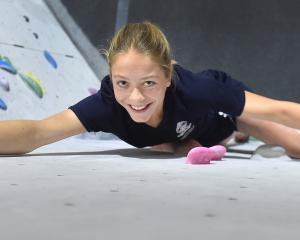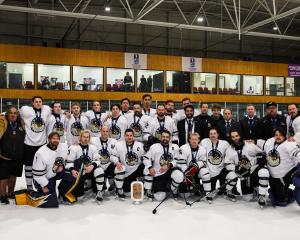As the Winter Games NZ closed yesterday, organisers began looking to a larger event in 2011.
The Games ended after 10 days of "world-class" competition with a spectacular closing ceremony attended by Prime Minister John Key.
A fireworks display lit up the sky over a ski parade of Coronet Peak instructors carrying flares and the flags of competing nations down the slopes.
Winter Games NZ chief executive Arthur Klap said he was sad it was all over after months of hard work.
"We're already looking to develop the Winter Games concept and make it even bigger for 2011," he said.
The Games had come in under its $3.5 million budget and had gone "extremely well" in difficult weather conditions.
Despite unusually cold weather and double the normal rainfall for this time of the year, only one event had to be cancelled.
International coverage of the Games had "far exceeded" targets.
Media coverage was essential to attracting top competitors and promoting and growing the Games in the future.
The 1500 competitors and supporters who came from outside the region had meant a "big spend" for the regional economy, he said.
A focus for the next Games would be to attract more visiting spectators.
Mr Key, at the closing ceremony, indicated government support could also be possible for the next Games.
Winter Games New Zealand Trust chairman Eion Edgar said the event had been "frustrated" by the weather.
"When you are dealing with outside conditions in snowsports, it's to be expected. The show went on," he said.
Mr Edgar praised the 400 Games volunteers for their hard work and the Government for injecting $1 million in funding.
"It's a wonderful thing for the Otago region, especially Wanaka, Queenstown, Naseby and Dunedin.
It's incredible not only for the economic benefits but for putting the region on the world map," he said.
The inaugural Games had attracted 800 competitors from 40 countries, he said.
Canada received the most medals, followed by the United States and Japan.
New Zealand came sixth.
Destination Queenstown chief executive Stephen Pahl said the publicity for Queenstown during event was "absolutely priceless".
"It has been fantastic media exposure for the region. How the Winter Games organisers managed to lift the profile of the Games to such a high level in the inaugural year is a fantastic achievement," he said.
Oakridge Grand Mecure Hotel general manager Fraser McKenzie said the Games had had a "tremendously positive" impact in Wanaka.
"Not only for accommodation and service providers but also from a community perspective, as it highlights Wanaka on a global scale," he said.
Dunedin's ice stadium manager, Neil Gamble, said the Games had raised the stadium's profile.
He said over 3000 spectators had paid to see events.
Maniototo Promotions member Graeme Duncan said hosting the Winter Games had reinforced the Maniototo's reputation as a top ice sports destination.
"The tourism benefits will have been immense.
All that publicity the event has got, the international exposure from the television coverage - it's been a great plug for Maniototo and for Central Otago," he said.
Maniototo Community Board chairman Richard Smith said the response from competitors and spectators had been very positive.
The flow-on benefits from the event would be long term, he said.













